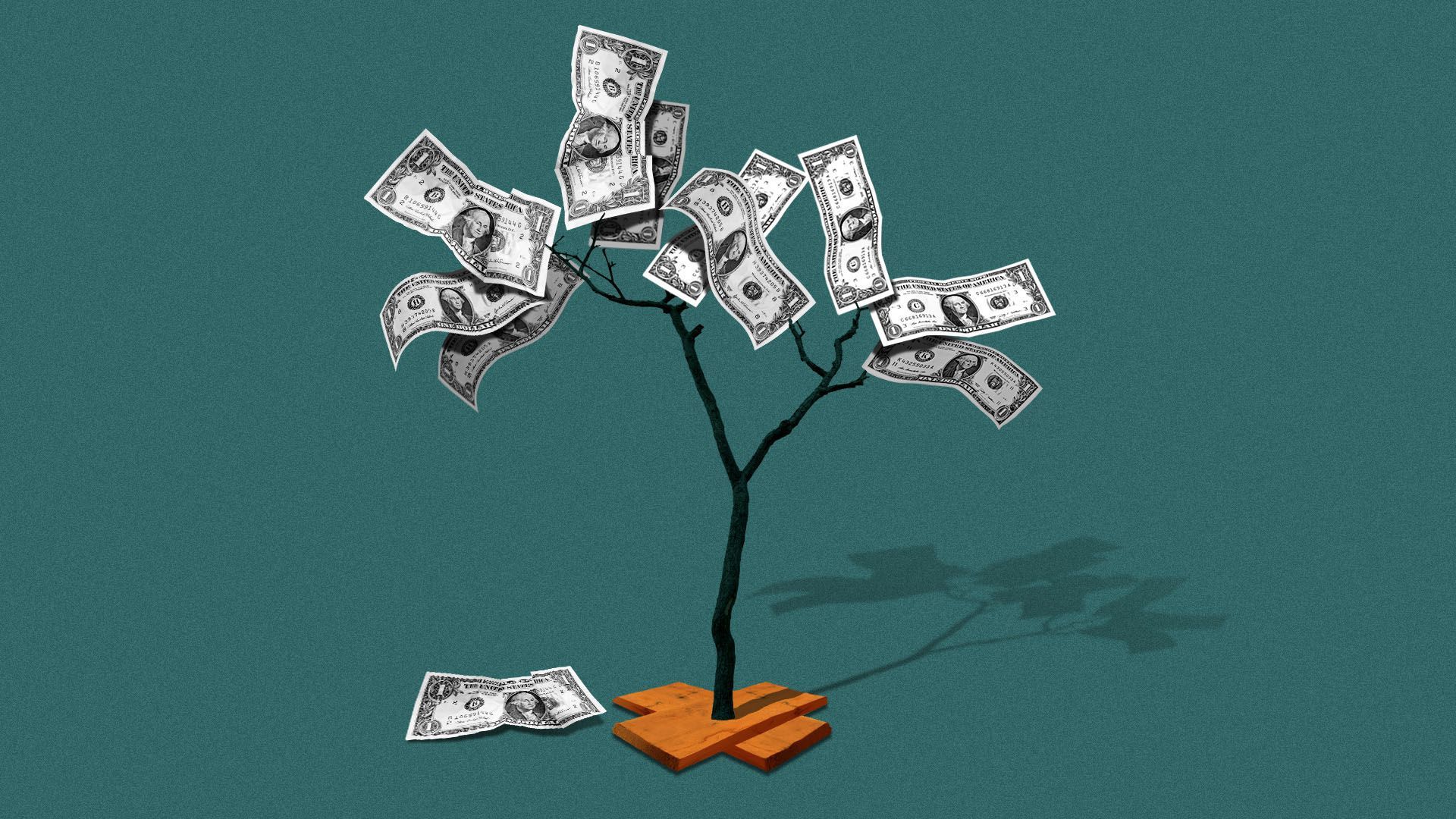
Illustration: Sarah Grillo/Axios
China’s Evergrande is giving hedge fund managers who invest in distressed situations what they’ve craved all year: a huge company with billions in debt trading at deeply discounted levels.
Yes, but: It’s a sign of the times that in order to access one of the only large distressed opportunities, they have to stretch into one of investing’s riskiest regions.
- “There are very few time-tested rules around credit and the system of recourse in China,” Dan Zwirn, co-founder, CEO and CIO of Arena Investors, tells Axios.
Why it matters: In the U.S., unprecedented fiscal stimulus and monetary policy support has helped keep capital flowing to troubled companies, all but eliminating the natural flow of the distress cycle. Hedge funds that raised tons of capital in 2020 to invest in struggling companies have found few places to deploy that cash.
Catch up quick: Chinese real estate developer Evergrande missed interest payments on some of its $300 billion in debt last week.
- U.S. hedge funds like Saba Capital Management, Redwood Capital Management, Contrarian Capital Management and Silver Point Capital have bought positions in the company’s bonds, Bloomberg reports.
How it works: Distressed investors typically buy struggling companies’ bonds when they’re trading at deep discounts — think 50 cents on the dollar or lower.
- The goal is often to take over the company — much like a bank takes control of a house with a defaulted mortgage — and then later sell it to (hopefully) recoup the initial investment several times over.
Be smart: Holding an investment through a bankruptcy or restructuring process is one of the riskier endeavors on Wall Street — and that’s with the benefit of the U.S. bankruptcy code's standardized legal framework and financial disclosure requirements.
- Lacking such a system, buying unsecured bonds in a complex capital structure is just "silly" — and could be one sign of the lack of opportunities at home, Zwirn says.
What to watch: Whether Beijing decides to intervene — and who that benefits.
